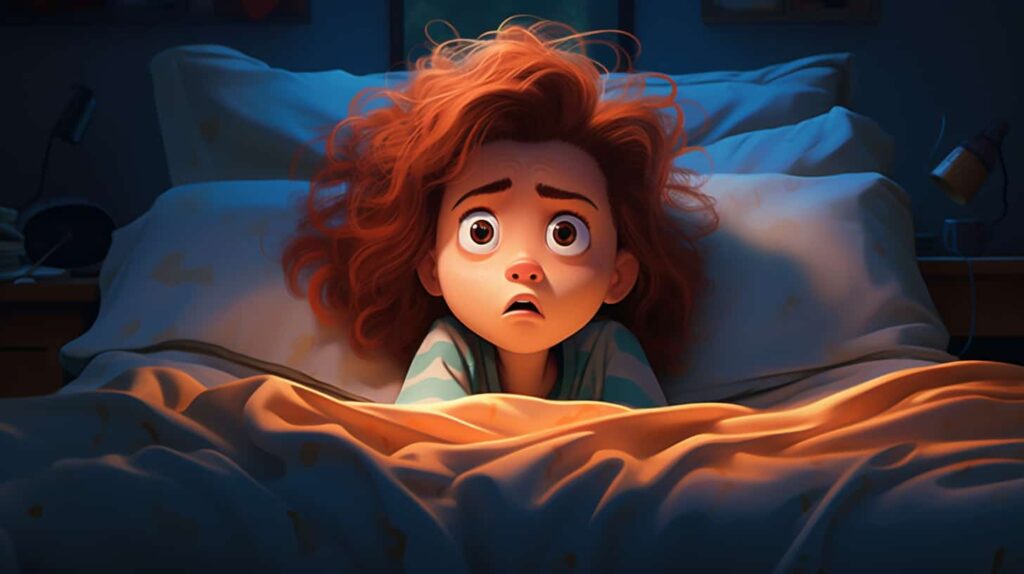When our little ones start showing signs of stress or anxiety, it's natural for us as parents to want to help them as best we can. However, identify these signs is not always an easy task. Fortunately, with a little sensitivity and vigilance, it is possible to spot these subtle manifestations in our children. In this article, we'll explore the different signs of anxiety your child might exhibit and discuss ways to manage them with love and empathy.
Signs of Anxiety to Watch For
Behavior Changes
One of the most common indicators of anxiety in children is a sudden change in their usual behavior. They might become more agitated, withdraw socially, or even exhibit aggressive behavior. They might also frequently complain of stomach aches or headaches for no apparent medical reason. Keeping a close eye on these changes can help spot signs of anxiety in your child early.
When children are going through periods of anxiety, their behavior can often be the first indicator of their inner discomfort. They might suddenly become more agitated, getting carried away by whirlwinds of emotions that are difficult to contain. This is why it is also not uncommon to see them gradually withdraw from their usual social circles, preferring solitude to the company of their peers. Sometimes this pent-up anxiety can manifest in unexpected ways, through outbursts of aggressive behavior, silent witnesses to their inner struggle.
Also, these dear little ones can generally complain of stomach aches or headaches without modern medicine being able to identify an obvious medical cause. These physical symptoms, although sneaky, can serve as a wake-up call, a silent cry for help that caring parents should never ignore. Keeping a vigilant eye on these behavioral fluctuations can reveal the beginnings of anxiety in your child, paving the way for early, caring intervention.
Concentration Difficulties
Difficulty concentrating may be a sign anxiety indicator in children. They might have trouble focusing on homework, paying attention in class, or even focusing on activities they were previously passionate about. If you notice a marked decline in your child's ability to concentrate, it could be a sign that something is bothering or worrying them.
When anxiety creeps into children's minds, it can disrupt their ability to concentrate meaningfully. You might notice that they have difficulty delving into their homework, with their minds constantly distracted by worried thoughts that prevent them from fully concentrating. In class, their ability to pay attention can crumble, their gaze wandering into space, captivated by concerns that escape the understanding of those around them. Even activities that once captivated them might lose their appeal, as their minds become cluttered with the torments of anxiety. If you notice a noticeable drop in your child's concentration skill, don't take it lightly. This could well be a sign that something is deeply bothering or worrying him, and addressing these concerns in a sensitive and empathetic way is essential to providing him with adequate support.
Sleeping troubles
Another important sign to look out for is a change in your child's sleep habits. Difficulty falling asleep, frequent nightmares or even repeated nocturnal awakenings can be manifestations of anxiety in young people. So, be sure to create an environment conducive to sleep and establish a reassuring routine to help your child get back to restful sleep.

Our little ones' sleep habits can often reflect the emotional turmoil that is plaguing them. If you notice persistent difficulty falling asleep, with hours spent tossing and turning in bed, this may be a sign that anxious thoughts are haunting their minds, preventing them from finding the peace needed to surrender to the sleep. Indeed, recurring nightmares could slip insidiously into their nights, a projection of the buried fears that torment them when awake. Frequent nocturnal awakenings can also reflect their inner struggle, plunging them into a state of constant alertness that takes them away from the restorative rest they so need.
In such situations, it is essential to create an environment conducive to sleep, relaxation and peace of mind. Establishing a calming routine before bed can also help ease their anxiety and promote restful sleep, which is essential for their emotional and physical well-being.
Common Signs of Anxiety in Children
| Signs of Anxiety | Demonstrations |
|---|---|
| Behavioral changes | Aggression, social withdrawal, agitation |
| Difficulty concentrating | Decline in academic performance, loss of interest |
| Sleeping troubles | Insomnia, frequent nightmares, waking up at night |
Keep in mind that every child is unique, so signs may vary from one individual to another. If you are concerned about your child's emotional well-being, do not hesitate to consult a healthcare professional or psychologist who specializes in pediatric care for appropriate advice.
By recognizing these signs of anxiety, you can help your child overcome their fears and worries, while providing the support and love needed to allow them to thrive. Stay tuned, be patient and show him that he can always count on you, even in the most difficult times.
